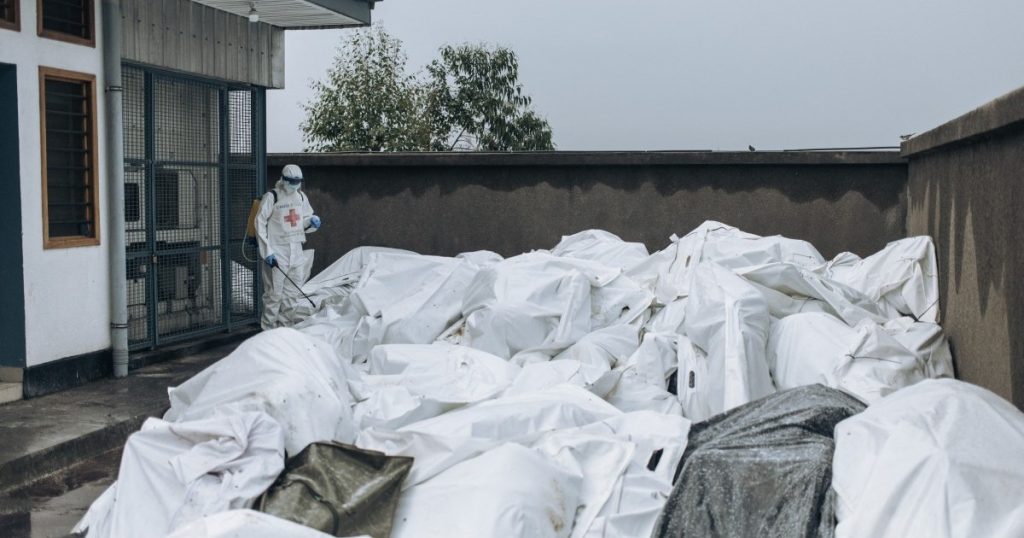Summarize this content to 2000 words in 6 paragraphs At least 773 people have been killed in eastern Democratic Republic of the Congo’s (DRC) largest city of Goma and its vicinity in a week, amid fighting with Rwanda-backed M23 rebels who captured the city in a serious escalation of a decade-long conflict, authorities said.
“These figures remain provisional because the rebels asked the population to clean the streets of Goma. There should be mass graves and the Rwandans took care to evacuate theirs,” Congolese government spokesman Patrick Muyaya told a briefing on Saturday in capital Kinshasa, adding that the death toll could be higher.
M23 is the most potent of more than 100 armed groups vying for control in DRC’s mineral-rich east, which holds vast deposits critical to much of the world’s technology. They are backed by about 4,000 troops from neighbouring Rwanda, according to United Nations experts.
The rebels’ advance into other areas was slowed by the central African nation’s military, which recovered some villages from them. The military was weakened after it lost hundreds of troops, however, and foreign mercenaries surrendered to the rebels after the fall of Goma.
Meanwhile, hundreds of Goma residents began returning to the city on Saturday after the rebels promised to restore basic services, including water and power supply. They cleaned up neighbourhoods littered with debris from weapons and filled with the stench of blood.
UN peacekeeping chief Jean-Pierre Lacroix on Friday said M23 and Rwandan forces were about 60km (37 miles) north of South Kivu’s provincial capital of Bukavu. Lacroix said the rebels “seem to be moving quite fast”, and capturing an airport a few kilometres (miles) away “would be another really significant step”.
Goma’s capture has brought humanitarian operations to “a standstill, cutting off a vital lifeline for aid delivery” across eastern DRC, said Rose Tchwenko, country director for the Mercy Corps aid group.
“The escalation of violence toward Bukavu raises fears of even greater displacement, while the breakdown of humanitarian access is leaving entire communities stranded without support,” she said.
Keep Reading
Subscribe to Updates
Get the latest creative news from FooBar about art, design and business.
© 2025 Globe Timeline. All Rights Reserved.


